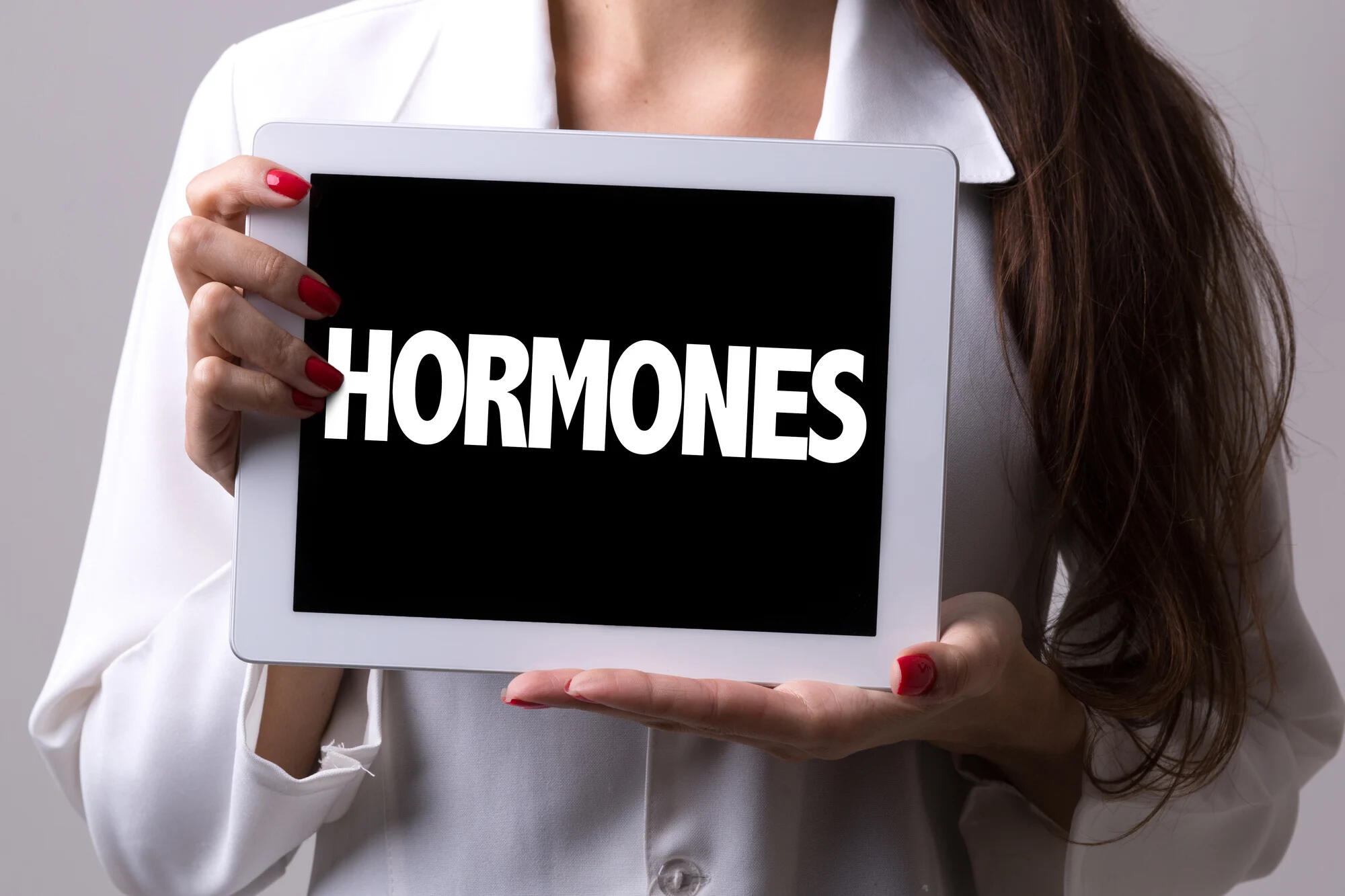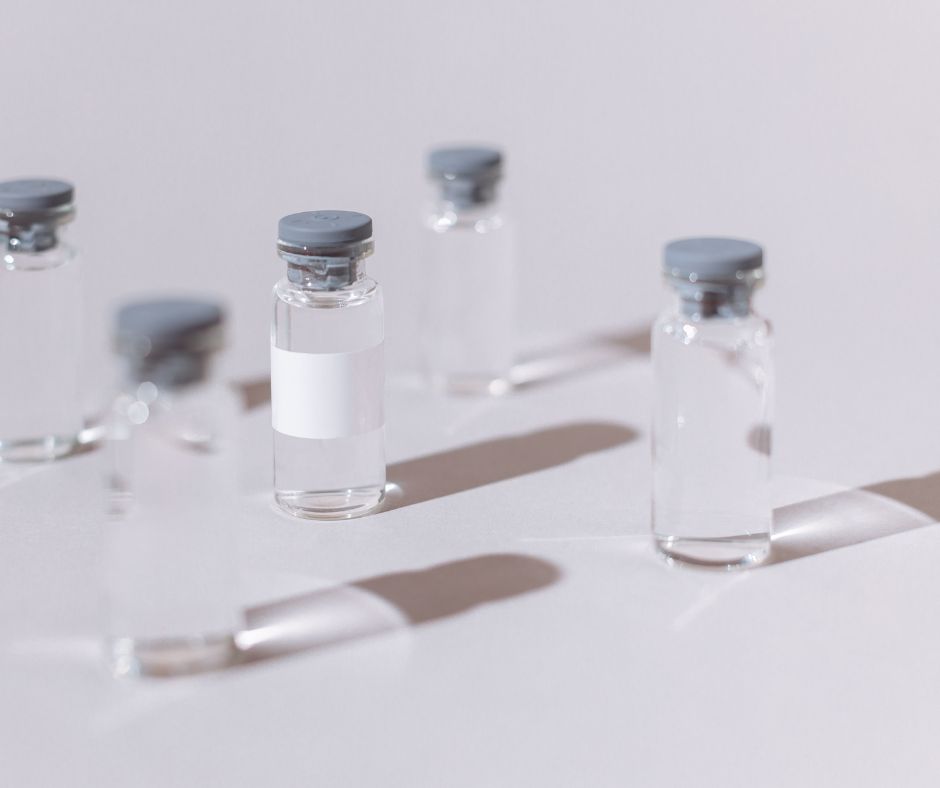Many of us look forward to the day when we’re old and wise. We can look back and reminisce on our achievements and the experiences that brought us to where we are.
While getting older brings its share of wisdom, it also causes a large number of inconveniences. You might forget information you shouldn’t have trouble remembering, and it could be more difficult for you to complete physical tasks. One of the most notable side effects of aging is upsetting your hormonal balance.
If you choose to use supplements for hormonal imbalance, there’s certain information you need to keep in mind. This will help ensure you avoid pitfalls you may have otherwise encountered. Let’s explore what to consider.
What Causes Hormonal Imbalance?
There’s no shortage of causes behind hormonal imbalance. One of the most common is prolonged stress. This can stem from almost anything, such as a demanding job or a turbulent romantic relationship.
A poor diet can also lead to hormonal imbalance. If you don’t get enough of the required nutrients, your hormone levels could become irregular.
In some cases, autoimmune conditions can harm your body’s hormone levels. In situations like these, you’ll need to receive the appropriate medical treatment since your body is attacking itself.
Many people overlook the fact that aging could also lead to hormonal issues.
As we get older, men produce less testosterone and women produce less estrogen. The rate at which this occurs will vary depending on the individual. It’s also impacted by how high your natural hormone levels are.
For example, a man with high testosterone could reach his 60th birthday without experiencing many hormone-related issues. A man whose levels aren’t as high could have problems as early as 35 or 40.
It’s worth noting that certain medications can lead to hormone imbalances. Antidepressants, birth control pills, and steroids are some of the most common.
What Are the Symptoms?
Noticing the symptoms of a hormonal imbalance can be difficult at times, but there are key signs to look out for. Understanding them will help you take action as soon as possible. Let’s look at symptoms you might encounter.
Hair Loss
While this isn’t always caused by hormone-related issues, it could be a potential sign that your levels are irregular. Hair loss in this scenario tends to manifest in the form of abundant shedding and thinning. Hormone issues likely won’t cause temple recession.
A great way to gauge if you’ve been experiencing hair loss is to take a photo under the same conditions each week. After a month or so, compare the pictures to see if you’ve been losing density.
Unexplained Weight Gain
It’s normal for the number on the scale to fluctuate as time goes on. Most people don’t stay at a consistent body weight and instead shift within a specific range. To clarify, a woman could weigh anywhere from 145 to 152 pounds on any given day.
If you notice a drastic increase in body weight without modifying your lifestyle, this could be a sign of a hormone problem. When people gain weight in this scenario, it’s typically mostly fat. This can cause a large number of issues with self-perception.
Night Sweats
Women going through menopause will typically experience night sweats. Hormonal changes make it difficult for the human body to regulate its temperature.
Night sweats primarily occur when people fall asleep underneath a blanket. They might feel cold when they go to bed, but their body will become much warmer throughout the evening. Night sweats can make it notably difficult to sleep.
Depression
Our hormones are strongly linked to our mental health. The more imbalanced hormone levels become, the more likely someone will become depressed. Keep in mind that depression isn’t always characterized by sadness.
Those who suffer from depression are typically angry without understanding why. They might also feel apathetic toward activities they used to enjoy. A great example is someone who used to spend five days per week in the gym suddenly having no desire at all to work out.
Brain Fog
Brain fog is characterized as a lack of mental clarity. You could have trouble remembering basic information, such as names or dates. You might also find it difficult to understand simple concepts.
Let’s assume you were pulled over for speeding. The officer tries to explain that you were going 42 mph in a 35 mph zone and that’s why you’re getting a ticket. An episode of brain fog could prevent you from understanding the situation despite how straightforward it is.
How Do Supplements Help?
The primary way supplements help with hormone imbalance is by providing your body’s required nutrients. If your body is deficient in certain nutrients, your hormone levels could be adversely impacted.
However, correcting deficiency isn’t the only way supplements help. Supplements also improve hormone levels based on the way they interact with the body. To elaborate, taking certain supplements regularly can minimize issues (such as stress) that can lead to hormone imbalance.
What Supplements Should I Choose?
Using supplements is a great form of natural hormone treatment for many people, but it’s crucial to choose the right ones. Keep in mind that not every supplement will apply to your situation. Below is a list of the primary ones you can benefit from.
Vitamin D
People can obtain vitamin D from the sun, but this is often a double-edged sword. Prolonged sun exposure can lead to skin damage, causing people who live in sunny regions to avoid going outside during the day. Unfortunately, this can lead them to become vitamin D deficient.
Vitamin D is linked to the regulation of ovarian function. Women who are deficient for prolonged periods could encounter hormone issues. Too much vitamin D can have nasty side effects, though.
These include vomiting, kidney damage, and nausea. If you choose to use sun exposure for vitamin D, always wear sunscreen. Even brief exposure to UV rays can damage your skin’s integrity.
B Vitamins
These are required for the body to properly produce hormones. It’s not uncommon for people to be deficient, as getting enough through your diet takes careful planning. Fish, poultry, and non-citrus fruits are the most common foods people consume for vitamin B6.
B vitamin supplements can reduce inflammation in some women. The most important to focus on are vitamins B2, B6, and B12.
Omega Fatty Acids
Proper cellular communication and function are impossible without omega fatty acids. These have a beneficial side effect of improving inflammation, as well.
The body doesn’t produce this substance on its own, so you’ll need to get it through supplementation or food. For women who deal with menopause issues, omega-3 fatty acids can potentially help with night sweats. Omega-6 fatty acids can help reduce breast pain.
Magnesium
Many people who take multivitamins won’t be deficient in magnesium. Some people need more than others, however. Magnesium manages energy production and muscle function.
It also handles cell structure and nervous system regulation. Fortified cereals, nuts, and leafy green vegetables are the recommended sources of magnesium. Consider magnesium supplements if you find your magnesium levels to be deficient over long periods.
Chasteberry
Chasteberry isn’t nearly as common as the others on this list, but this doesn’t make it any less effective. It’s a plant native to Asia and Mediterranean regions. Its efficacy varies depending on the individual.
Some people find that it helps regulate symptoms related to hormone deficiency. As with any supplement, consuming too much can lead to complications. Concerning chasteberry, this generally involves headaches and nausea.
Adaptogens
These are plant extracts that can help restore the body’s hormonal balance. One of the primary ways it does so is by mitigating the production of cortisol.
High cortisol levels can lead to irritability and difficulty sleeping. However, it’s worth noting that adaptogens have not been extensively tested. There are gray areas regarding their efficacy and safety, so use them responsibly.
Probiotics
When healthy gut bacteria aren’t regulated, hormone levels can fluctuate. The same can be said for stress levels. If you don’t regularly eat foods like yogurt, kimchi, or sauerkraut, it’s best to take a probiotic supplement.
Other Corrective Methods
There are two
There are two
There are two primary ways other than supplementation you can fix hormone imbalances: hormone replacement therapy (HRT) and bioidentical hormone replacement therapy (BHRT). Understanding these options will help you decide when they are most applicable. Listed below are the key factors to consider for both.
HRT
As the name implies, hormone replacement therapy involves introducing exogenous hormones to the body. This is typically done through injections, patches, or tablets. You’ll need to work with a medical professional to determine what type of hormone therapy is right for you.
Without proper testing, you won’t have insight into your natural levels. This can make it impossible to safely supplement hormone medication. Patients often see results shortly after beginning HRT.
This is especially
This is especially
This is especially true for patients with levels far below normal amounts. The goal is to help patients align their hormone levels to a healthy level.
BHRT
Bioidentical hormone replacement therapy has a few unique differences compared to conventional HRT. These hormones are created from plant substances to mimic the hormones in your body – hence the name “bioidentical”, meaning they are chemically identical to those your body produces.
BHRT is administered like HRT, meaning patients can expect patches, tablets, or injections.
There are some scenarios where BHRT is a superior option compared to HRT. Speak with a doctor to determine which course of action is best for your situation. This will help you get the right results and avoid unnecessary complications.
When Should I See a Doctor?
It’s essential to see a doctor if your symptoms become unmanageable. For example, let’s assume you’re experiencing hormone-related depression. There’s a difference between occasionally feeling down and feeling so hopeless you can’t get out of bed.
You should also see a medical professional if supplementation doesn’t improve your symptoms. Give yourself a few weeks to assess your results. If you don’t notice the appropriate changes, it’s recommended to seek medical assistance.
You should always talk to a doctor before beginning any form of hormone therapy. It’s important to do lab testing before starting hormone therapy to understand exactly what your body needs. An expert should walk you through the whole process, and help you understand administration, side effects, and dosage.
Seek out reliable experts and companies when purchasing supplements or hormone therapy.
Many medical professionals aren’t willing to hear their patients’ concerns. In some cases, this can lead to the wrong form of treatment. As long as you do your due diligence, you’ll find a practitioner ideal for your desired goals.
Use Supplements for Hormonal Imbalance
Under the right circumstances, using supplements for hormonal imbalance can help you increase your quality of life. The tips in this guide will allow you to navigate the process and avoid complications. Just be sure to work with a medical professional if you have concerns.
Evolve strives to help people lead healthier, happier, and more productive lives with the help of physician-backed hormone therapy. Our experienced team provides safe, high-quality care that’s sure to exceed your expectations. You’ll learn more about how we can help when you book a consultation today.






